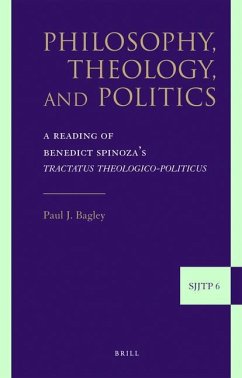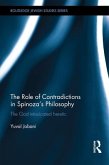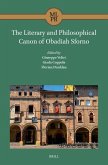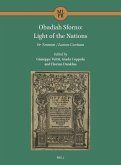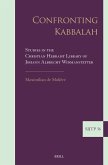The interpretation of Spinozaa (TM)s theologico-political teaching remains a matter of controversy. Is Spinoza simply addressing contemporary difficulties in The Netherlands of the late 1660s? Or is he attempting to solve a more basic and enduring human problem? In this book, it is argued that against the background of contemporary concerns, Spinoza treats the more fundamental a oenatural problema of reconciling those who live by a oethe dictates of reasona with those who live by a oethe urgings of the passions.a Based upon his accounts of theology, human nature, and politics, Spinoza fashions a theocratic or a oetheologico-political solutiona to the a oenatural problema by holding that the a oeuniversal religiona and the democratic liberalism of the treatise share a common purpose. Thus, Spinoza becomes a a oenew Moses.a
Bitte wählen Sie Ihr Anliegen aus.
Rechnungen
Retourenschein anfordern
Bestellstatus
Storno

